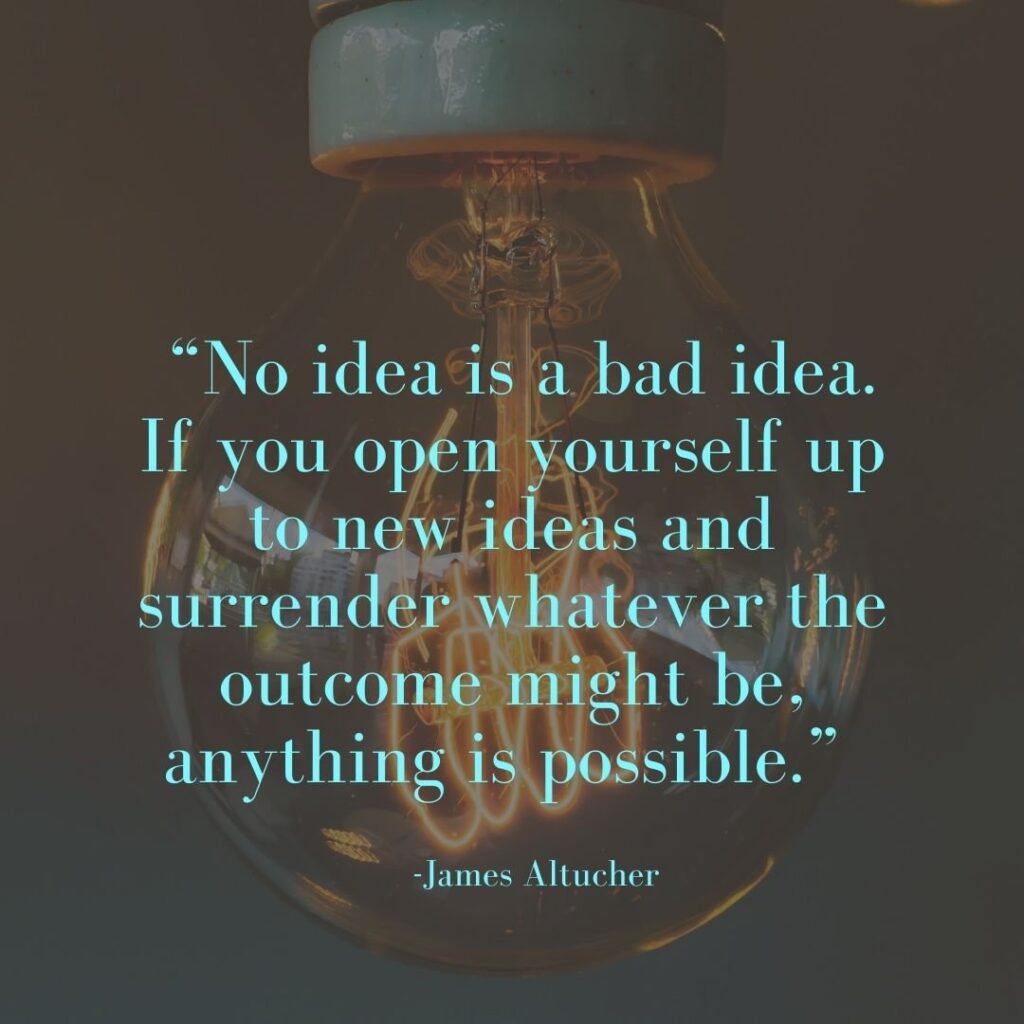When Jesse Itzler was building his private jet company he had a jumbo jet sized problem. Only wealthy people will spend $250,000.00 to purchase a share of a private jet, and Jesse didn’t know any wealthy people. So he thought, “Where do rich people like to hang out?” It was then he discovered the Ted conference held in Monterey, California.
Jesse’s company was called Marquis Jet which was later acquired by Warren Buffet’s NetJets. Marquis Jet sold prepaid flight time on private jets which allowed its customers to fly around the country quicker and more conveniently than commercial flights and for less money than owning and operating their own private jet. But Jesse didn’t fly to California on a private jet. It took him 16 hours to get to California which is almost as long as it would take you to fly from New York and across the Atlantic to Italy and then back again.
When Jesse arrived in California he ran into another complication. He couldn’t get into the conference without a ticket and he didn’t have the thousands of dollars he’d need to buy one.
So he went to the local coffee shop to come up with a game plan on how he would get into the conference and meet his potential customers. This was when he noticed that attendees from the Ted conference were coming into the coffee shop on breaks to buy coffee and muffins.
Then he had a brilliant idea and the next morning Jesse woke up early before the sun came up and went to the coffee shop to buy every single muffin they had.
When customers came in from the conference the employees at the coffee shop said, “I can get you a coffee, but I’m sorry we are all out of muffins.”
“You’re out of muffins? This early?”
This was when Jesse sprang into action, “Sir, I overheard you’re wanting a muffin, I have an extra you can have.”
“What do you do?”
“I own a jet company called Maquis Jets.”
“No way! I’m in the market for a time share on a jet. Do you mind if I sit down and learn a bit more?”
This was Jesse’s first sale and he didn’t even need to get inside the conference to make it. His ideal client came to him and he was able to sell his company while the customer’s guard was down. If he had approached these folks at the conference they would have shooed him away. But in the coffee shop, with the muffins in hand, Jesse was in complete control of the frame.
I’ve looked up to Jesse Itzler for years and admire how he always comes up with a unique solution for complicated problems. He’s quite an out of a box thinker and doesn’t appear to be afraid of being embarrassed. This allows him to create opportunities and open doors that would not have been available to him.
If you haven’t already, read his hilarious books Living with a SEAL and Living with the Monks. These books helped shape me into the entrepreneur I am today and I pray that someday we’ll get to work together on a project. Maybe holding Kelloggs accountable for the food (term used loosely) they are manufacturing and marketing for our children? Or possibly he’ll take me up on my suggestion that him and his wife Sara Blakely write a parenting book.
Accidentally creating opportunity with outside the box thinking
I’ve listened to James Altucher’s podcast, and read his books and blog for years. I’ve become quite fond of his unconventional entrepreneurial style and I try to emulate it whenever possible. When his most recent book Skip The Line launched I knew it was an excellent opportunity for me to write a great review to give a little back to him after all he’s taught me. I spent hours reading the book and taking copious notes, then got to work writing a full length summary.
I thought my summary would stand out if I incorporated some of his concepts within it, so I included 10 ideas to sell 100,000 additional copies of the book Skip The Line. These ideas were proven because they worked when I launched my friend Ben Greenfield’s book Boundless in 2020. I thought, “Why not share them for free and see if they work for James too?”
It’s important for your actions to be authentic and genuine. What works for Jesse Itzler may not work for me. And what works for me may not work for you. The people that can help you skip the line are busy and often have hundreds of people begging for their attention. The best thing you can do to stand out is to be yourself.
“Live simply, love generously, care deeply, speak kindly, leave the rest to God.”
President Ronald Reagan
I sent the summary over to the email address he often shares with listeners during his podcast episodes.
I never thought writing this summary would enable me skip the line. But only one hour later this email from James Altucher arrived in my mailbox.
Do you want to win one of these “skip the line” mentorships I’ve been discussing? “I will make you a millionaire” or at least on the path to that?

James and I were scheduled to have our first meeting only one week later
I spent an entire week scratching my head wondering WWJAD (What Would James Altucher Do?) After tearing apart my business, life, and talents, I thought it made the most sense to grow my Amazon agency. With more clients I know I can reach our goal for the “I Will Make You A Millionaire Mentorship.”
But I was wrong…
I shared with James the details about my two primary businesses:
1) An Amazon agency through which I help nutritional supplement companies sell more products on Amazon.
2) My fledging blog (that you are reading now.)
James didn’t even consider the possibility of growing my Amazon agency. Instead he shared his spoke and wheel concept from chapter 19 of Skip The Line.
My Amazon business and blog are two separate wheels and to grow I need to build new spokes coming from each wheel and then monetize them. For example:
- I can start a newsletter on Substack teaching other entrepreneurs how to sell more products on Amazon or start their own agency.
- How about starting a podcast where I interview experts, share tips and tricks, and give updates on the ever-changing Amazon landscape?
- Or I can build a service as a software business that automates the majority of cumbersome tasks I complete on a daily basis.
Exercise the Possibility Muscle (from chapter 9 of Skip The Line)
Next, James asks me to create two idea lists for my two wheels and when finished to send them over to him.
He says, “No idea is a bad idea. If you open yourself up to new ideas and surrender whatever the outcome might be, anything is possible.”

This is difficult. Before I can even write down an idea I like to analyze its practicality.
Do I have the skills I need? Will I be able to execute it? How much money will it cost? Will failing to complete my idea make me feel embarrassed and ashamed?
How about you? What was your last million dollar idea? Did you immediately dismiss its practicality?
James share that I needed to throw these thoughts away and that he expects to see mostly awful ideas on my lists. If he doesn’t, I’m not pushing myself or taking big enough risks, and I’m not building my idea muscle.
How will I know an idea is bad if I don’t at least write it down?
Here are a few of the awful ideas I sent over to James… if you like any of them they are yours for the taking:
- Build a nutritional supplement company targeting GEN-Z and advertise it on TikTok.
- Create a phone service where anyone that can’t use a computer can still order products through Amazon by calling a 1-800 number.
- Christian Kickstarter/Indiegogo? For faith-based products/books/services/ideas.
- Instead of GoodReads, create GoodShows? It’s hard to find shows to watch. I liked The West Wing and want to watch a similar show… GoodShows will show me that Gilmore Girls was enjoyed by 90% of The West Wing fans… I would never have watched this show, but I did, and ended up loving it because the show is surprisingly similar to The West Wing.
You may think it is not a great idea at first, but maybe a friend or family member will think it’s fantastic. You may not have the skills to execute your idea, but someone you know does and if you have a mindset of abundance there is no reason not to share your ideas. You’ll always have more ideas.
If you keep your ideas to yourself the chances of them ever coming to fruition are very small. No one wants to steal your idea. Everyone is too busy. And even if they do, you’ll do a better job executing on it than they will!
James says the key isn’t necessarily to come up with good ideas, but it’s to continue to build and flex your idea muscle. If you have a strong idea muscle you will always know what you need to do.
How about you? What’s your big idea? I’d love to help you bring it to life. What kind of help do you need? Share your ideas in the comments below… I will read and respond to them all!
Feature image courtesy of Erda Estremera.
